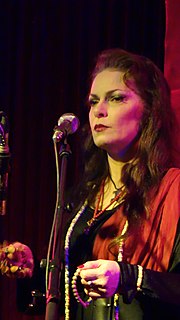A Quote by Fidel Castro
In my next incarnation, I want to be a writer.
Quote Topics
Related Quotes
One of the awful things about writing when you are a Christian is that for you the ultimate reality is the Incarnation, the present reality is the Incarnation, and nobody believes in the Incarnation; that is, nobody in your audience. My audience are the people who think God is dead. At least these are the people I am conscious of writing for.
Just write. If you have to make a choice, if you say, 'Oh well, I'm going to put the writing away until my children are grown,' then you don't really want to be a writer. If you want to be a writer, you do your writing... If you don't do it, you probably don't want to be a writer, you just want to have written and be famous—which is very different.
Here's what I want from a book, what I demand, what I pray for when I take up a novel and begin to read the first sentence: I want everything and nothing less, the full measure of a writer's heart. I want a novel so poetic that I do not have to turn to the standby anthologies of poetry to satisfy that itch for music, for perfection and economy of phrasing, for exactness of tone. Then, too, I want a book so filled with story and character that I read page after page without thinking of food or drink because a writer has possessed me, crazed with an unappeasable thirst to know what happens next.
In most cases a favorite writer is more with us in his book than he ever could have been in the flesh; since, being a writer, he is one who has studied and perfected this particular mode of personal incarnation, very likely to the detriment of any other. I should like as a matter of curiosity to see and hear for a moment the men whose works I admire; but I should hardly expect to find further intercourse particularly profitable.
We all return. It is this certainty that gives meaning to life and it does not make the slightest difference whether or not in a later incarnation we remember the former life. What counts is not the individual and his comfort, but the great aspiration to the perfect and the pure which goes on in each incarnation.
The subjects in my work appear as unidentified ghosts that can't be said to be of this world. I've decided to call them incarnations. In various religions, myths, and legends, the word "incarnation" refers to the birth or emergence of transcendent beings in the form of humans or other bodies. If "incarnation" denotes the appearance of an abstract being in some concrete form, in a gut ceremony, a shaman could be considered an incarnation of our desires, hopes, and sorrows. The incarnations that appear in my work are always new and I meet them for the first time by drawing them.









































